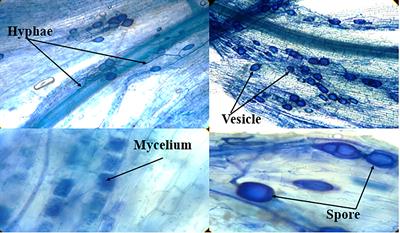ORIGINAL RESEARCH
Published on 05 Jun 2023
Influence of drought stress and mycorrhizal (Funneliformis mosseae) symbiosis on growth parameters, chlorophyll fluorescence, antioxidant activity, and essential oil composition of summer savory (Satureja hortensis L.) plants

doi 10.3389/fpls.2023.1151467
- 2,791 views
- 17 citations




